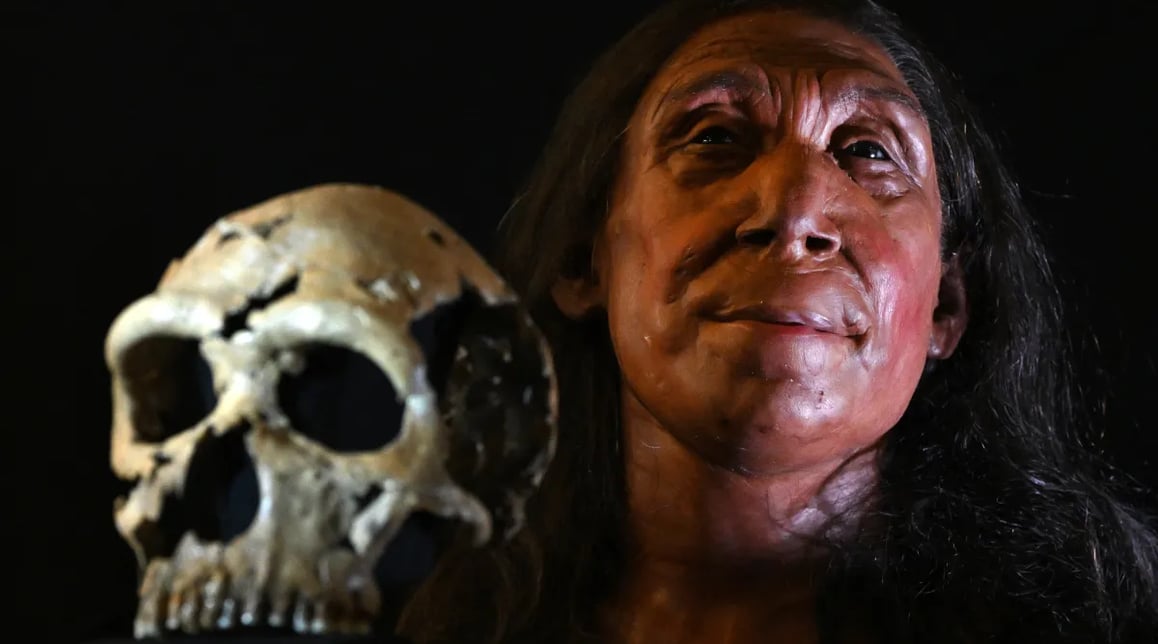Secrets of the Neanderthals: A Netflix Documentary Review
This Netflix documentary provides a unique perspective on the prehistoric world, which has often been portrayed incorrectly.
Reham Atya
5/2/20242 min read
Welcome to our book review blog! Here, you will find insightful and honest reviews of various genres and authors. Whether you're looking for a gripping thriller, heartwarming romance, or thought-provoking non-fiction, we've got you covered. Join our community of book lovers and discover your next favorite read.


Secrets of the Neanderthals, narrated by the legendary Patrick Stewart, is a riveting Netflix documentary that sheds new light on our prehistoric relatives. This film challenges the conventional image of Neanderthals as brutish and unintelligent, revealing a species far more complex and human-like than previously thought.
Changing Perceptions
For decades, Neanderthals have been depicted as less evolved and primitive compared to Homo sapiens. Secrets of the Neanderthals turns this notion on its head, presenting groundbreaking findings that highlight their sophistication. Viewers are taken on a captivating journey through various excavation sites, uncovering evidence that paints Neanderthals as intelligent beings with complex social structures and emotional lives.
One of the documentary's most compelling revelations is the depth of emotional bonds Neanderthals formed. Archaeological evidence, such as burial sites where bodies were interred with flowers and tools, suggests that Neanderthals practiced ritualistic behaviors and cared deeply for their deceased. These findings imply a level of symbolic thinking and emotional connection previously believed to be exclusive to modern humans.
Experts in the documentary propose that Neanderthals had intricate social structures, challenging the outdated notion of them as solitary beings. This portrayal of a community-oriented species capable of forming deep emotional ties brings us closer to understanding the true nature of Neanderthal society.
Shanidar Cave Discoveries
The documentary delves into the Shanidar Cave in Iraqi Kurdistan, a site that has yielded some of the most astonishing insights into Neanderthal life. The cave contains multiple Neanderthal burial sites, where the positioning of bodies and the presence of pollen grains suggest the practice of burial rituals and the use of flowers in these ceremonies. These discoveries challenge the long-held belief that symbolic behavior was unique to Homo sapiens and reveal a culturally rich and emotionally expressive side of Neanderthals.
The exploration of Neanderthal burial practices and potential religious beliefs is particularly fascinating. The documentary discusses the significance of artifacts found with Neanderthal remains, such as tools and animal bones, which hint at a belief in an afterlife or at least some form of spiritual practice. This aspect of Neanderthal life bridges the gap between them and modern humans, suggesting that they too grappled with existential questions and honored their dead in meaningful ways.
Secrets of the Neanderthals underscores the intelligence and adaptability of Neanderthals. Contrary to the outdated image of them as brutish beings, the documentary shows Neanderthals as skilled hunters and toolmakers who adapted to diverse and harsh environments across Europe and Asia. They developed specialized tools and techniques to survive, used fire for cooking and warmth, made clothing from animal hides, and even created art. These findings highlight their cognitive abilities and suggest that they were capable of abstract thought and creativity.
Secrets of the Neanderthals is more than just a documentary; it's a revelation. Through the work of dedicated archaeologists and the masterful narration of Patrick Stewart, viewers gain a profound understanding of Neanderthal life and the complexities of their existence. This documentary challenges outdated stereotypes and highlights the shared humanity between Neanderthals and modern humans.
This addition to Netflix's documentary collection is a remarkable journey into the past, unveiling the secrets of a species that was far more complex and sophisticated than we ever imagined. It encourages us to look at Neanderthals not as distant, primitive cousins but as intelligent beings who shared many of the traits we hold dear today.


